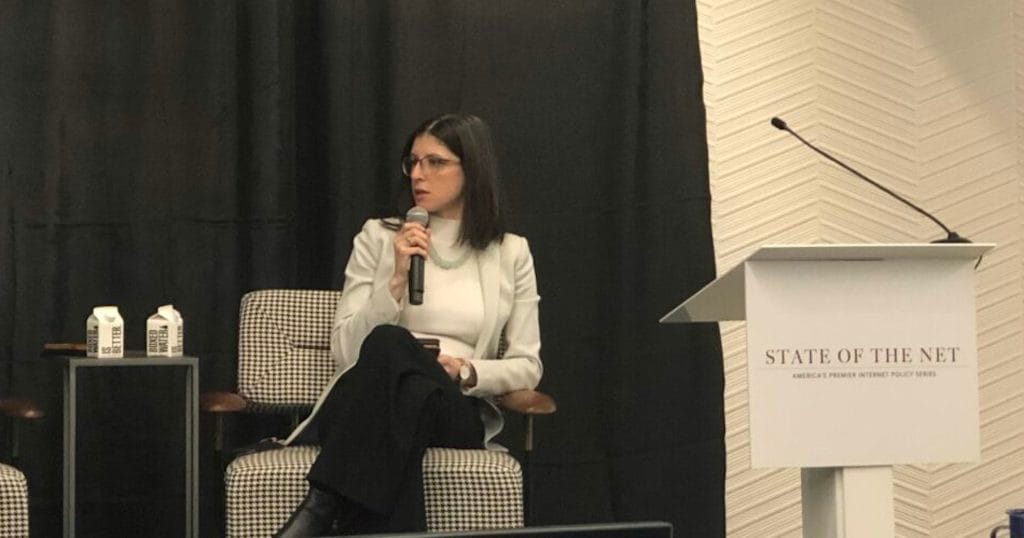Big Tech Must Unite Against Russian Invasion of Ukraine, Just as America and EU
The head of the Center for European Policy Analysis said America and EU need to agree on Big Tech.
Theadora Soter

WASHINGTON, March 4, 2022 — In the wake of Russia’s invasion on Ukraine on February 24, big tech companies are grappling with how to respond. And on Monday, many leading thinkers on the role of internet in society urged them to do more.
Technology companies in the Western world need to agree on an approach to handling misinformation regarding the invasion, said Alina Polyakova, CEO of the Center for European Politics Analysis, speaking at the State of the Net conference here on Monday.
Polyakova’s plea came during a panel regarding the U.S. and EU relations at the annual Washington policy event that takes place during the week of the State of the Union address. She said that international tech giants were being forced to grapple with what role the might be able to play in response to the Russian invasion.
Platforms including Facebook, Google and Twitter have all significantly reduced Russian-backed ads. Meanwhile, YouTube, Meta’s Facebook and TikTok are blocking Russian media organizations, like RT and Sputnik, from using their platforms within the European Union.
But Polyakova said that tech giants shouldn’t be making these decisions without government help.
“If the United States and Europe are divided on the tech agenda front, then we’ll be divided on the values front. I think we need to start really pushing our governments to not leave companies fighting the large authoritarian states on their own,” she said.
Collective action by U.S. and EU, collective action by big tech
The implementation of aggressive sanctions, including banning many Russian banks from using the international payments system SWIFT on Saturday, demonstrated a united front, at least as Ukrainians began mounting their strong defense of their capital city Kyiv as Russian forces began attacks on the city on February 25 and Saturday.
Speaking on Monday, Polyakova said she was optimistic about the cooperation between the American and Europe, stating, “Hopefully the unity we’re seeing right now between Europe and the United States in response to Russia will be channeled into greater cooperation on this agenda as well.”
Still, the lack of a united front by the big tech companies does create a disconnect, she said.
Twitter may flag a propaganda post from the Russian government, yet Facebook may not. That adds fuel to the fire of misinformation, Polyakova said: It hinders “our ability to counter disinformation across narratives on the online space.”
She urged general regulations of big tech. “We still don’t have just a basic, regulatory framework that will give companies some guidance on what they should or should not be doing,” she said.








Member discussion